Down a winding alleyway with pastel-coloured buildings in Valencia’s ‘El Carmen’ neighbourhood, is the studio of graffiti artist and mural painter Freskales, an artist who has lived in Valencia for 14 years. It was in this studio full of trinkets and paintings (and a friendly dog for company), that I sat down to speak with him about his work. Before reaching his studio, he took me to a large mural of his facing the Rio Turia Gardens, where a stylised bat (the symbol of Valencia) juggling three oranges is painted.
24/7 VALENCIA: Could you explain to me what this mural is about?
FRESKALES: This mural is a tribute to Valencia, to the figure of the bat… But well, the image is of a bat juggling oranges. He is happy juggling the oranges, but the reason he is juggling with oranges is due to a problem we have here with the farmers, with the oranges, who do not know what to do with them. So the is bat juggling with them. The problem is that they fall in the orange fields and in the end they are spoiled. I want to send that message, that wink of ‘what are we doing with the oranges?’. We’re going to juggle with them because we don’t know what to do with them. It’s about Valencia, and the agriculture here.
Is there a key theme or link throughout your work?
The common thread between all my work are the figures. It’s figurative work, people with animal heads. Before, I also used to make them with masks and so on. And this is the thread, those characters I make. It is true that every time, each mural is a different character. Now I’m working with many references to birds. Another driving thread throughout my work are the saturated colours. I arrive in a place and bring it to life with colour… that has a positive result on the corner or the wall.
So, do you prefer birds and animals in general because of the colours and expressions? Why do you paint animals in place of people?
I suppose because they transmit or connect with me more directly. Maybe because I use photographic references to paint these animals. Because I see photos of people, or not of people, and they don’t tell me anything. But when I start to see photos of animals, they transmit a lot to me. Apart from that, the colours are also fun to work with, which is something I look for. Seeing photos of animals from around the world is also amazing.
How long does it take you to paint a mural as big as this one?
Depending on each mural, it can be between three days or a week.
You’ve lived here for half your life, how does the time you weren’t living in Valencia influence your work?
Well, it’s not in every mural, obviously, but in many of them – or the ones that have the most importance to me – reference where I’m from, or what I experienced as a child. Like agriculture, or farm animals. I never had a farm or anything like that, but we always had them nearby in the town. There were many animals there, like dogs, hens, roosters, that inspire me a lot, and remind me of there. Then I mixed them a little with what the city gave me, so the theme of vandalism, or kinds of clothing or situations.
How do you choose what to paint?
Not everything I paint carries a message. You don’t always have to say something. So, I can paint one day because I feel like painting, because I thought it was good to paint that bird and put it in a certain sweatshirt in certain colours. A lot of the time I don’t think about it. But other times, depending on where I paint…I suppose you think of the animal to paint that transmits what you what to transmit via that particular mural.
Again, about the animals, because there are many types of animals. I mean, there are also many types of people, but I think that in the end it’s more monotonous because you’re always working with the same colours. But with animals there’s an essence that to me transmits a lot, it’s more fun.
You do a lot of different kinds of work, illustration, large murals, graffiti… Is there a medium you enjoy most?
Murals are what I enjoy the most. I have always painted, since I was very young, I was already drawing, painting, creating, but it was graffiti, that moment of me against the wall, what has motivated me the most for years until today. The street, the spray paint, its different formats and spots, the trips to different places; all that makes painting murals a real passion for me.
What has your evolution as an artist been like? Tell me a little about your personal history with art.
I started in 2002, 20 years ago, painting graffiti in the street. Only painting graffiti tags, I spent many years signing with another name. It was from 2012 when I started painting more “kekos”, which are the drawings that accompany the graffiti pieces, until eventually I only painted kekos and started to create my characters in larger murals. In 2015 already my work was based on creating big murals with my characters and craziness.
On your Instagram there is a phrase that says ‘haciendo el agua freska’, is this your motto? Can you describe the meaning behind the phrase?
“Haciendo el agua muy freska” is a phrase that a friend told me some time ago and I kept it as a motto or a phrase that I use very regularly. The meaning of the phrase is that you have to face up to life. But it is a phrase that I use symbolically.
Is this why you chose the name Freskales?
I didn’t choose the name Freskales, it was given to me. It is a village nickname given to me by the same friend who used to say the phrase “agua freska”. He was a great friend, who unfortunately left us and for him I decided to use that name that he jokingly gave me to be my artistic name.
The nickname that my colleague gave me came about because he always told me that he was a fresco that I had in my house, a botijo that made very fresh water, which meant that he was saying he was a cheeky guy, that he had a lot of nerve…and it makes me laugh. In the end it has stayed just as fresh, it stayed making fresh water… it is a little nod to that, to have courage in life and get everything the way you want.
What is a botijo, and why is it important to have this connection with your hometown in your work?
A botijo is an earthenware tool, a vessel, that keeps water cool. It has a connection to my homeland because that’s where it all started with my relationship with the botijo, but most of all it’s the connection to my friends and my youth.
You have created murals, illustrations and graffiti, what is your favourite medium and why?
The wall is what I enjoy the most. I have always painted, since I was very young I was already drawing, painting, creating, but it was graffiti, that moment of me against the wall, what has motivated me the most for years until today. The street, the spray paint, its different formats and spots, the trips to different places; all that makes painting murals a real passion for me.
Who is a graffiti artist or muralist that inspires you?
I’ve always loved the work of Etam Cru, Sainer and Bezt.
What advice would you give to young artists who want to create works like yours?
That they should feel free to create, and that nothing should stop them. And when they go out to paint in the street, they should respect the works and murals of others. Freedom and respect.
END OF INTERVIEW
24/7 VALENCIA: Freskales has a lot of new work in development at the moment. From a second edition of his Valencian graffiti magazine, to working on festivals, or his project with Savage Joys where they are going to work in an entire Beach Club. If Freskales’ work interests you, and you want to keep up to date, you can follow his social media below.
Report by Julia McGee-Russell
Article copyright ‘24/7 Valencia’
‘Freskales’ photo by Javier Garcia Soria
FRESKALES
Instagram: https://www.instagram.com/freskales
Facebook: https://www.facebook.com/freskales/
Related Post
This site uses Akismet to reduce spam. Learn how your comment data is processed.


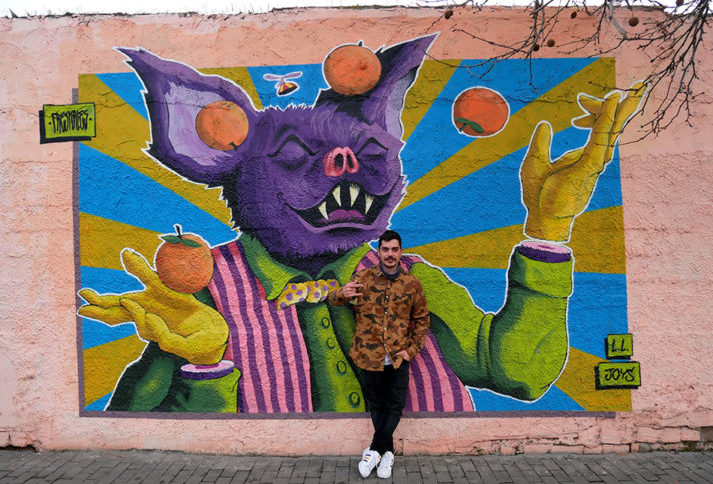
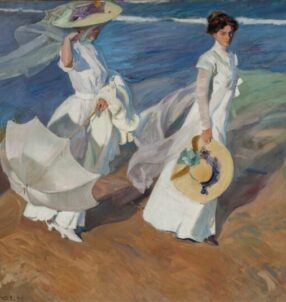
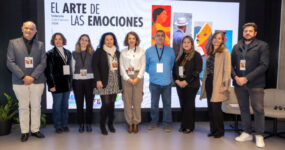

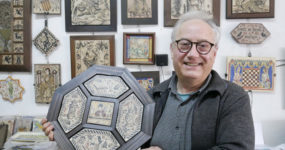
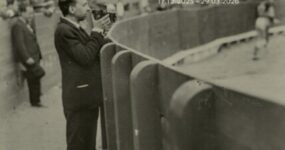

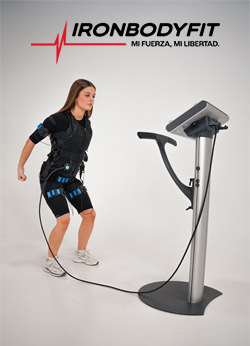
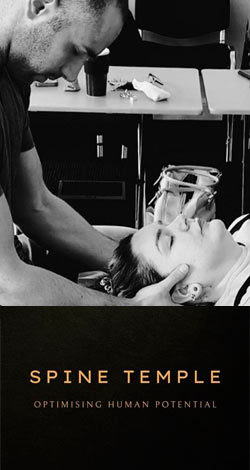















Leave a comment